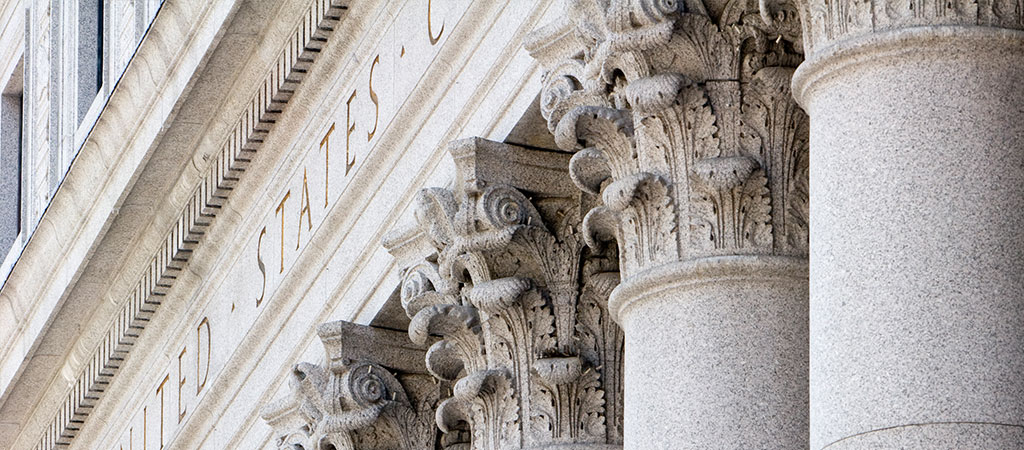Publications and Media
Access a comprehensive collection of DOJ publications and other media related to hate crimes. Additional content filters are available below the side navigation menu.
This report documents and reviews horrific crimes that took place more than a century ago, when white law enforcement and residents coordinated an attack on the thriving Black community of Greenwood in Tulsa, Oklahoma. The 123-page report describes the events leading up to the massacre and reveals crucial information not discussed in other sources that described the violence. It concludes that, were present-day civil rights laws on the books at the time, offenders could have been prosecuted and convicted. But because no perpetrators are now alive, and because statutes of limitations on then-existing laws have long-since expired, no legal action is now possible.
In this article from NIJ's "Notes from the Field" series, which allows leading voices in the field to share their strategies for responding to the most pressing issues on America's streets today, Chief Luther Reynolds of the Charleston Police Department discusses how law enforcement must remain vigilant about what’s going on in the communities they serve in order to prevent acts of terrorism. Chief Reynolds stresses that violent extremism is a very real threat that is not going to go away due to the deep hatred of targeted groups of people. He believes prevention, based on good policing, community engagement, and problem solving, is the top priority, and that taking formal steps to make a statement against hate, at the State level, is essential to build community trust and provide the criminal justice system tools for better outcomes. Chief Reynolds stresses the importance for law enforcement leaders to maintain a sense of urgency and prioritize prevention, be smart and efficient, and find a balance where respect for people’s constitutional rights is paramount.
As required by the National Defense Authorization Act, the FBI and Department of Homeland Security, in consultation with the Director of National Intelligence, have produced this strategic intelligence assessment on domestic terrorism, which includes a discussion of activities, certain data on domestic terrorism matters, and recommendations.
This White House strategy represents the most comprehensive and ambitious U.S. government effort to counter antisemitism in American history. The strategy advances a whole-of-society approach to countering antisemitism, resting on four pillars:
- Increase awareness and understanding of antisemitism, including its threat to America, and broaden appreciation of Jewish American heritage.
- Improve safety and security for Jewish communities.
- Reverse the normalization of antisemitism and counter antisemitic discrimination.
- Build cross-community solidarity and collective action to counter hate.
On June 27 and 29, 2022, CRS hosted virtual protecting places of worship forums to provide interfaith communities with resources and information on securing their places of worship, help faith leaders build relationships with law enforcement, and answer questions. A total of more than 500 faith-based and other community members attended the forums.
Agenda
- Welcome and Introductions, Paul Monteiro, Director, U.S. Department of Justice, Community Relations Service and Harpreet S. Mokha, National Program Manager for Muslim, Arab, Sikh, South Asian, and Hindu, U.S. Department of Justice, Community Relations Service
- Overview of Hate Crimes Laws, Investigations, and Active Shooter Training, Michael Campion, Chief, Civil Rights Division, U.S. Attorney’s Office for the District of New Jersey
- Securing Places of Worship, Steven Long, Regional Protective Security Advisor, U.S. Department of Homeland Security, Cybersecurity and Infrastructure Security Agency
- Grants and Other Resources, Mark Silveira, Senior Advisor and Branch Chief, Federal Emergency Management Agency
- Q&A
On May 20, 2022, the one-year anniversary of the enactment of the COVID-19 Hate Crimes Act, the Department of Justice issued a new guidance document with the Department of Health and Human Services (HHS), aimed at raising awareness of hate crimes during the COVID-19 pandemic. This guidance provides an overview of the rise of hate crimes and hate incidents during the pandemic, including a surge of hate crimes and hate incidents against Asian American, Native Hawaiian, and Pacific Islander (AANHPI) communities, and several steps that law enforcement, government officials, and others can take to raise awareness of increased hate crimes and incidents, and to use increased awareness as a tool for the prevention of and response to hate crimes.
In this podcast, the FBI discusses recent hate crime statistics. The podcast also covers how the FBI is working with communities to support victims and build trust between communities and law enforcement.
The Department of Justice (DOJ) is committed to advancing work that promotes civil rights, increases access to justice, supports crime victims, protects the public from crime and evolving threats, and builds trust between law enforcement and the community. The Bureau of Justice Assistance (BJA) is committed to supporting work that addresses these priorities, including a focus on hate crimes, crimes that impact civil rights, and other bias-motivated and hate incidents. This fact sheet provides information about BJA's programs that address hate crimes.
Students, parents, and school administrators deserve safe and inclusive environments that are free of harassment and discrimination. Well-designed and facilitated opportunities for groups to dialogue together can enable divided communities to address differences, through respectful sharing of perspectives that moves towards solutions by focusing on the common good. This toolkit provides school communities and leaders with best practices for difficult conversations.
The United States Department of Justice Community Relations Service (CRS) helps local communities address conflicts through its City Site Problem Identification and Resolution of Issues Together (City-SPIRIT) program. The program helps communities address tension and conflict related to issues of race, color, national origin, gender, gender identity, sexual orientation, religion, or disability.


